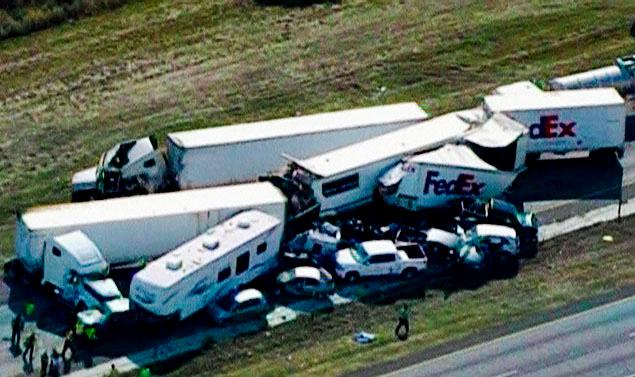If you are looking for the one place in the nation where you should practice defensive driving, then Texas is apparently it. Data published by the National Highway Traffic Safety Administration reveals that Texas leads the nation in traffic fatalities. In 2011, the most recent year for which national statistics are available, there were just over 3000 people killed on roads in Texas, over 200 more than California, which came second. Although you would expect that there would be more fatal accidents in Texas than in less populous states such as Montana, even when the figures are adjusted to reflect this, Texas still comes in above the national average.

It also appears that the gap between Texas and the rest of the nation is continuing to widen. Traffic fatalities are falling across the nation – including in Texas until recently – but the rate of decline in Texas is much slower. In fact, 2011 was a particularly bad year for Texas – while fatality rates fell by 2% on average across the United States, they actually remain flat in the Lone Star State. This trend has been evident since 2006 – in that year, Texas traffic death rates were 6% above the national average, but this rose to 16% by 2011. As a result, if you are a car wreck lawyer Dallas is a hotbed of activity.
It is hard to determine exactly what the underlying causes are for this disparity between Texas fatality rates and those of other states, but there are a few likely suspects. The first of these is the state law on driving while using a cell phone. In Texas, unlike many other states, it is not illegal to talk on a cell phone when you are driving, nor is it illegal to send text messages. There are bylaws against doing this in some municipalities in Texas, but the two largest population areas in the state – Houston and Dallas Fort Worth – still allow cell phone usage. Proposals to ban cell phones have been put forward at the Texas State Legislature on more than one occasion, but these have all been blocked to date. In fact, Rick Perry, the governor of Texas, used his veto to block one such initiative, stating that he felt a ban would be unwarranted government interference in the lives of Texas residents.
Drink driving laws may also play a part. While DWI penalties in Texas are among the toughest in the US, police only have limited powers to stop people on the roads. Specifically, they cannot pull cars over for regular checks unless they have evidence that would lead them to suspect the driver is drunk. This removes a significant deterrent that is present in many other states.
Finally, another major reason may well be the resurgence of the oil industry in Texas, including around the Dallas area. Fracking has recently transformed the oil industry, making previously inaccessible oil and gas reserves economically viable. In fact, it is anticipated that oil production in the United States is likely to rise by 4 million barrels per day by 2018, with a significant proportion of this coming from Texas. Fracking results in increased truck traffic, as oil needs to be transported away from the wellheads. The process also generates large amounts of wastewater that need to be carried away for disposal.

